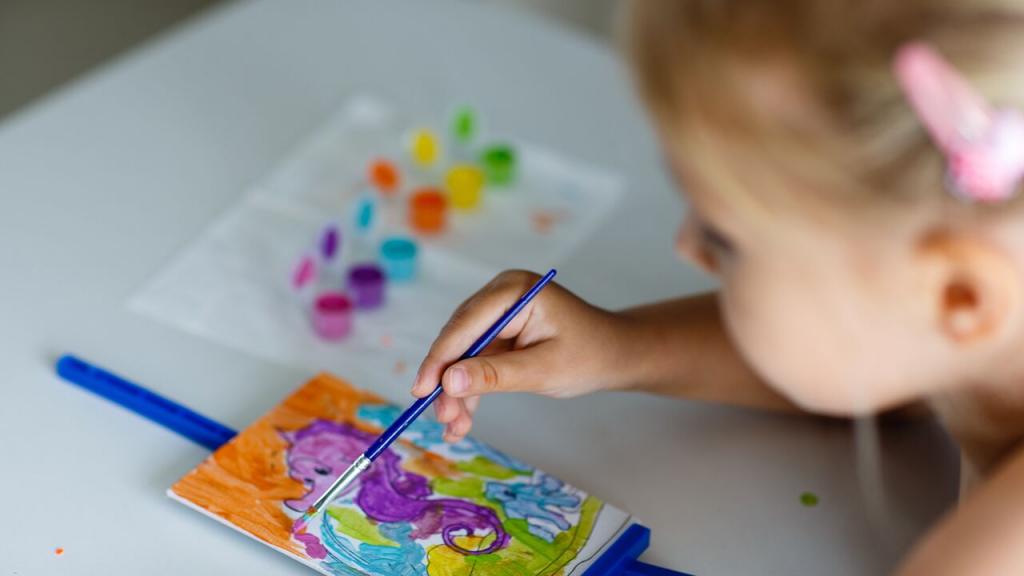
10 Ways to Motivate Preschool Independence
Getting ready for preschool is a big milestone and a step into another social world.
The world of organised play, socialising, and the need to be more independent. You can help your toddler to be ready for this step using a few simple tips at home.
Plato, a Greek philosopher, once said:
“The beginning is the most important part of the work.”
You can help your child to get off to a good beginning by trying to nurture some early stages of independence before they start school.
Here are 10 ways to foster independence at home.
1. Choosing what to wear.
It is a good idea to do this activity the night before. The early mornings are often very busy. Let your toddler choose something to wear for the next day and set it out, ready for the early morning. Add a jumper or jacket in case the weather changes. This routine applies to weekdays; you can be more flexible and let your toddler choose in the morning over the weekend.
2. Getting themselves dressed.
Try to have clothes that are easy to put on and be available for helping to tie ribbons or laces while your child is still learning those skills. Getting dressed can be frustrating for children if the clothes are difficult to put on. Practise does help and learning to dress a teddy, or a doll can enable your child to get used to putting clothes on, fastening a button, and knowing things like inside out or back to front.
3. Learning how to brush their teeth.
Brushing teeth is another part of a daily routine children can easily learn. Squeezing the toothpaste may take some guidance initially. Watching mom and dad or doing this routine with a big sister or brother is a helpful way of learning how to brush your teeth.
4. Making a packed lunch.
Putting together a lunch box for school is a great way to encourage independence. Initially, you could make the sandwiches, but let your toddler choose the fillings. The snack biscuits and other parts of the lunch that do not require cutting could be part of the responsibility. If your child is not required to pack a lunch, then organising a picnic at home is a good opportunity to prepare food. Making snacks for a play date is another way to encourage independence and produce something for themselves and others.
5. Setting a table for a family meal.
There are so many positive possibilities centred around the family dining room table. Let your child learn how to lay the table. There are opportunities at dinner time to set out the plates and knives, and forks with caring for others in mind. It is a counting and ordering exercise too. Start with setting the table, and later, when your child is more confident, introduce clearing the table too.
6. Learning how to tidy up after playing with their toys.
Tidying up can be a challenge. However, it is a good skill to teach your child. Make the process easy by having utility baskets for certain toys. Then tidy-up time is just a case of putting various toys into their baskets. Have a safe place for puzzles or construction toys your child is playing with so they do not have to be broken down every time you tidy up. Here’s another idea. Make up a tidy-up song and sing this as you tidy away the toys. It makes the chore of tidying up more fun. Songs like ‘Whistle while you Work’ or ‘Here We Go Round the Mulberry Bush’ but change the words to fit with tidy-up toys are good songs to choose from.
7. Encourage children to feed themselves and sit with the family at the table.
Sitting at the table and joining in with the family at mealtimes is a good way to encourage independence. You can start with finger food and move on to a spoon and fork while your child is learning how to manage cutlery. A family mealtime eaten together is an opportunity to strengthen social skills too.
8. Let them be involved in their bath time routine and put on their pyjamas.
Bathtime is always a fun time of the day. Let your child help you get the bathroom ready and prepare their pyjamas. Let them wash and dress themselves. Keep an eye on children who are in the bath or near water. Ending the day with a refreshing bath and getting dry and dressed are all good independence milestones.
9. Take care of a pet.
Helping to look after a family pet is a good way to encourage children to be kind and caring. There are many responsibilities associated with having a pet. Feeding a pet, filling water bowls, or cleaning fish bowls. Walking the dog, and helping to give a pet a bath, are some of the responsibilities your child could learn to share.
10. Start allowing your toddler to make reasonable choices.
Allowing children to make reasonable choices is a good way to show them their opinion counts. Initially, give them simple choices that you approve of either way. A choice of two things is a good place to start. If their decision does not work out to be the best option, then make sure you tell your toddler that was what they chose to do. It was their decision.
Mastering just a few of these activities will make a big difference to your child’s emerging sense of independence. Try them out slowly and see how soon you can build up to mastering all then of these suggestions.